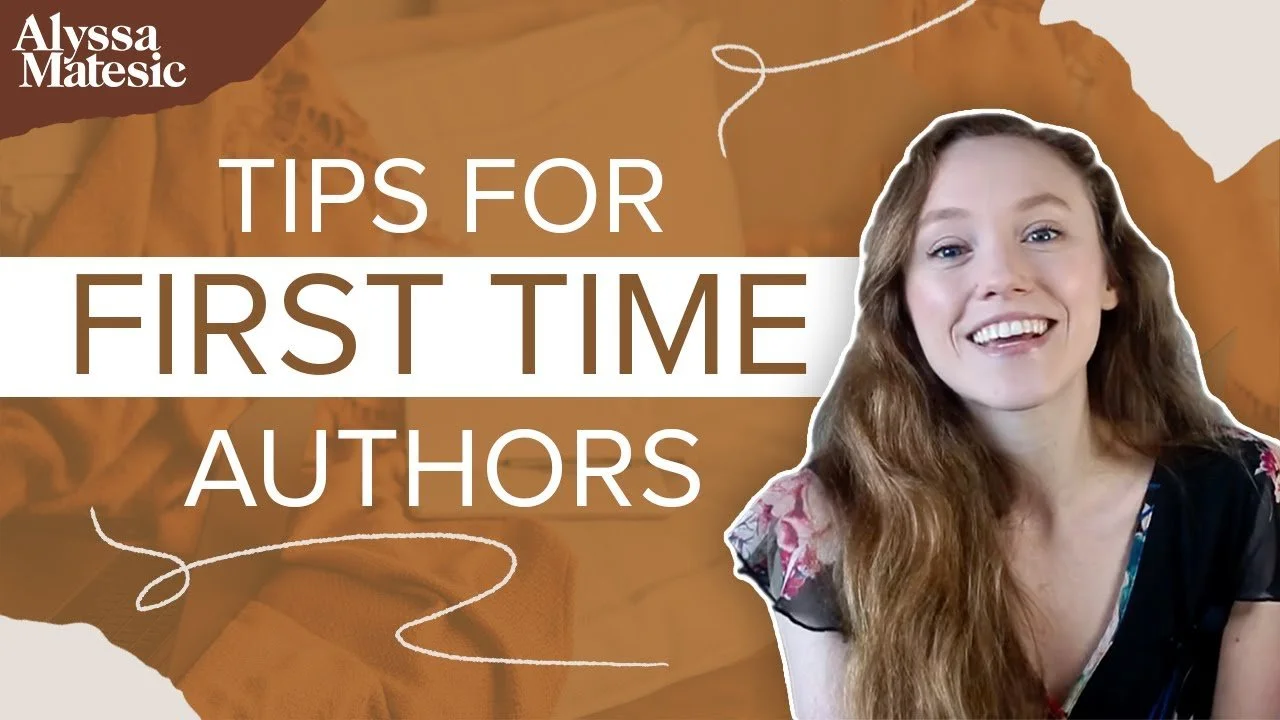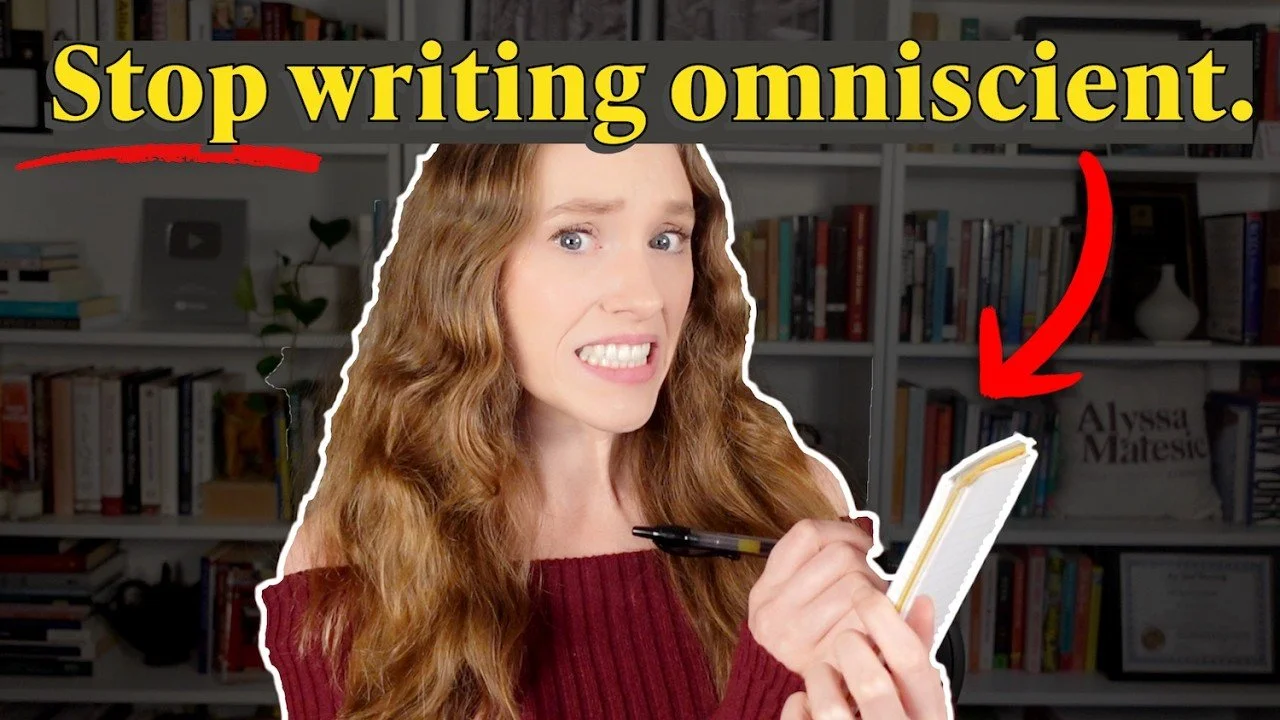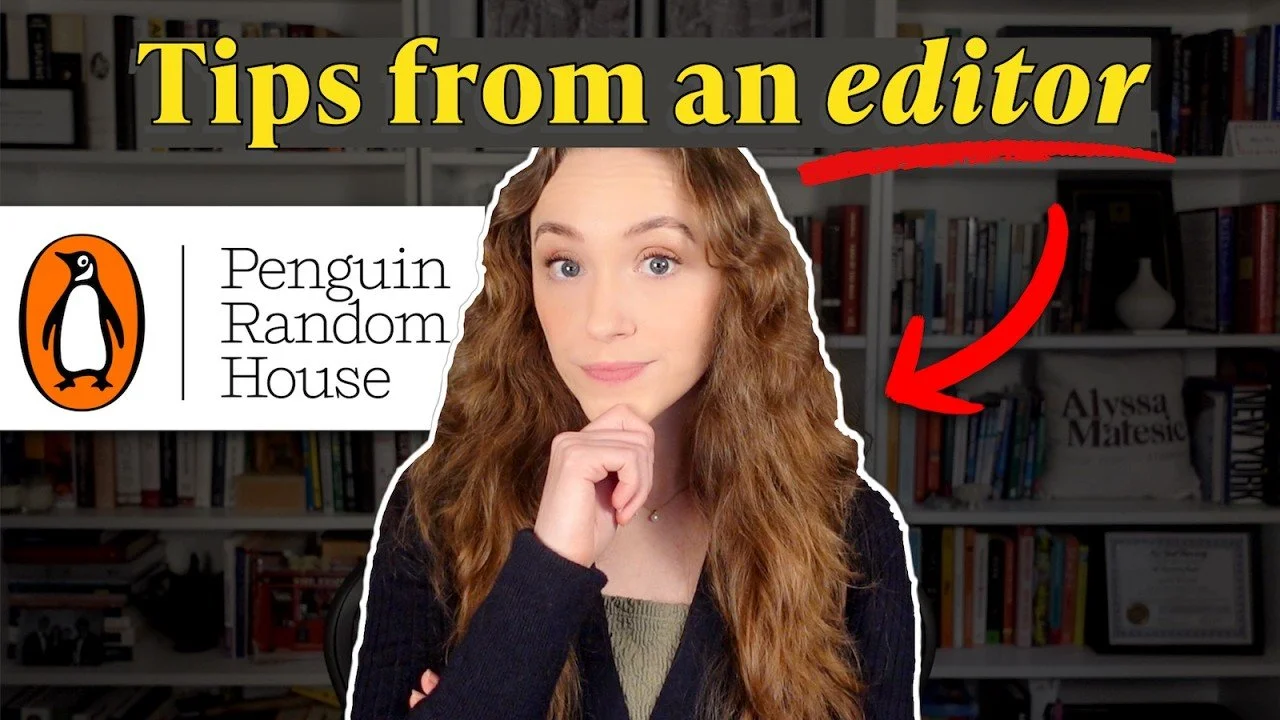5 Things to Keep in Mind When Writing the First Draft of a Novel
HIT PLAY OR READ THE POST BELOW:
Writing your first book is an exciting journey full of many highs and many lows. Over the years, I have worked with many debut authors, so I want to go over some recommendations and advice to aid in the process of writing the first draft of your novel. Here are some things to keep in mind if you are at this stage of the novel writing process.
1. The First Book You Write Isn’t Always the First Book You Publish
First and foremost, keep in mind that the first book you write does not have to be the first book you publish. You might have the inclination to make sure your first book is perfect, as you feel it’s going to be the one that makes you a best-selling author. But don't put any pressure on yourself that doesn't necessarily have to be there.
There are many, many instances of authors writing several books before they published their first one. In some cases, it actually ends up being beneficial to get more writing experience under your belt before you publish your first book. For instance, there might be mistakes you made in your first or second novel. But, by the third novel you've written, you have honed your craft. And that third novel could be the one that will make the biggest splash when you publish it.
Of course, it’s also still possible that this first novel is going to be the first book you publish, and it ends up being a big hit. The point is, try to keep an open mind and loosen any pressure you might be putting on yourself and on your first novel.
If this project does not end up being the first book that you publish, or if it doesn't ever get published, that is completely fine. You are learning so much about the writing process as you complete this first book. Focus on yourself as a writer, not on your book as a golden child.
2. Revising Can Be More Difficult Than Writing
The second thing to keep in mind is that editing your novel can actually feel more difficult than writing.
This is something I've heard from many of the debut authors that I work with. They say that getting all the words on the page and writing the first draft of their novel was the easy part. The hard part starts when you have to go back through the manuscript and be ruthless through editing.
Now, not all writers feel this way about editing, but it is a common theme. Editing entails you “killing some of your darlings.” As in, some of those passages that you thought were super great and beautifully written will have to be cut in the interest of making the most effective story possible. You may also end up having to restructure the novel or add a lot of material you didn't have in that first draft.
And it is completely normal to feel like editing is a monumental task you can't tackle on your own. This is where you can lean on beta readers or a professional editor to help you find issues in your manuscript and offer you tactical advice on what you need to do to strengthen it.
So know that if you're challenged by the revision process, you're not alone. You will be able to find a community of sympathetic writers and readers and editors who can and will help you get through it.
3. Sometimes It’s Best To Take a Break
The third thing to keep in mind when writing your first book is that sometimes the best thing you can do for your manuscript is put it away for a bit.
This can be especially helpful if you are in a rut during the revision process. Editing, at times, can feel overwhelming due to all of the big changes that need to be made. Maybe there are issues that your beta readers have pointed out, but you just don't know how to start fixing them.
That is a signal that you should consider putting the manuscript away. So, tuck that folder somewhere deep in your computer and open up a new document and work on something else. Get your mind off the manuscript, because sometimes when you're so deep in the story, you are too close to it to see it objectively.
But when you're working on some other project, your brain does double-duty in a positive way. One is that you are starting a new project, maybe something you’ve been brewing up in the back of your head for a while. Your imagination gets to play with a new world, characters, and premise, hopefully leading to a flurry of new ideas. Two, it gets your mind off your main project while still keeping your writing skills sharp and active. Then, when you finally have the clarity and mental headspace to return to that other book project, you will have fresh eyes. Those things that seemed impossible to fix will suddenly resolve themselves.
So, if you’re stuck deep in the editing trenches, do not see it as a failure and feel like you're doing everything wrong. If you decide you need to take some time away, you will likely find that it was absolutely the right thing to do in order to get your manuscript to where it needs to be.
4. Do Not Fear Your Readers
The fourth thing that I want you to keep in mind when you're writing the first draft of a novel is not to fear your readers. Writing is a solo act, right? You are doing it on your own. It's your individual experience. But, if you're ever going to publish the story or share it with anyone, suddenly your story becomes a mutual experience. You are sharing and allowing other people to engage with your art.
It's scary to put your manuscript in someone else's hands because it can feel so personal. It's your creative pursuit. In some cases, it feels like your heart and soul and you are baring it now to a reader who could completely trash it. However, don't let that fear of critique keep you from sharing your story.
It's true you may have readers who are critical or even outright rude, but for every person that doesn't respond well to your book, there will be a person that absolutely loves it. Write for those readers, the readers who love what you did, who were immersed in your story, and who get you.
There are always going to be people who don't see your vision, who wish that it was written in a different way, or have their own thoughts on how the story should have been structured. But you should let those people go and think instead about those people who are supporting you. They are the ones that you will ultimately be writing your next book for.
I want to emphasize this point because this can be a huge obstacle for first-time authors. Do not let the fear of criticism or the fear of what your readers are going to say keep you from pursuing your dreams. You have to take the plunge. If you get negative feedback along the way, consider it, but if it doesn’t resonate, let it roll off your back. Keep your head up and focus on those readers who are giving you positive feedback.
5. Writing a Book Is Huge!
The last thing to keep in mind when writing the first draft of a novel is that writing a book is a huge accomplishment. So I want to end this article with encouragement. Frankly, the vast majority of people in this world cannot say that they've written a book. Once you finish your draft, you will be one of the few that can say you have. Writing a novel is a feat that most people never accomplish in their lives. A novel is something you produced from scratch, in your own brain, and is uniquely and entirely yours.
So take the time to appreciate what you've done and congratulate yourself — no matter what happens, no matter if it ever has readers, and no matter if it ever gets published. Writing the first draft of a novel in and of itself is a huge accomplishment that is worth celebrating.
I hope these tips help you feel more confident as you're trucking along the book writing journey. As I said, it can have highs and it can have lows, but if your dream is to become an author, it is a journey worth taking.
Thanks so much for reading and happy writing!






